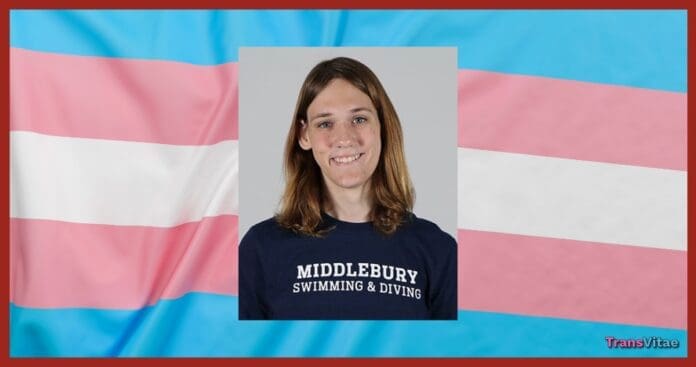It is with deep sorrow that we mark the passing of 21-year-old Lia Smith, a student at Middlebury College in Vermont. According to official reports, Smith was found dead on October 23, 2025, near campus after a days-long search. The Vermont Chief Medical Examiner’s Office has ruled the death a suicide.
Smith, a native of Woodside, California, was majoring in computer science and statistics. She competed on the women’s swimming and diving team and was also active in the Chess Club and Japanese Club. At Middlebury, she wasn’t just an athlete; she was known as an articulate advocate of transgender rights in the student community.
Smith was last seen on campus the evening of October 17 and was reported missing on October 19 by her father. After an intensive search assisted by drones, ground teams, and students, authorities found her body in a field near the college’s organic farm, The Knoll, in Cornwall, Vermont.
The Broader Lens: Trans Athletes and the Pressure They Carry
Lia Smith’s death is a tragedy in itself, but for the transgender community and trans athletes specifically, it also points to the heightened pressure many carry. Trans women in sport often navigate a gauntlet of public debate, scrutiny, and moralizing narratives that can build into a crushing weight of expectation and judgment.
Smith’s profile as an athlete and trans advocate placed her in a spotlight not just for her sport, but for what she represented. That dual identity, competitor and activist, can be empowering, but it can also open one to marginalization, questions of legitimacy, and endless debates about fairness.
We don’t know the full story of what Smith faced, but we do know this: no athlete, trans or cis, should have to fight their way through validation, stigma, public scrutiny, and internalized pressure as part of their daily existence.
What It Means for Us
For those of us in the work of writing, marching, and teaching that trans lives matter, Smith’s passing prompts reflection. It isn’t just about her as an individual, though she absolutely deserves to be remembered. It is also about how institutional systems, cultural narratives, and the way we talk about trans athletes shape lives.
We must broaden how we talk about trans athletes: they are not symbols, and they are not “controversial entries” into sport; they are people. Journalism and commentary need to avoid reducing them to questions of fairness alone; fairness matters, but so does dignity, access, belonging, and mental health.
Sporting institutions, educational systems, teams, and supporters must prioritize the whole person; their identity, mental health, community, and pressures, not just performance.
The Bottom Line
Middlebury’s president wrote, “Over the past few days, I have learned what a remarkable person Lia was. She was a gift to us, and we are so grateful that she was, and will always remain, a member of our Middlebury family.”
As a community committed to self-love, body positivity, empowerment, and trans affirmation, we honor Smith’s life and mourn her loss. May her legacy prompt better support, a more inclusive sports culture, and sharper awareness that trans athletes matter not because they are issues to debate, but because they are human beings with dreams, pressures, and the same right to thrive as anyone else.
If you or someone you know is struggling, you deserve help. In the U.S., you can call or text 988, or chat at 988Lifeline.org. For trans-specific support, contact Trans Lifeline at (877) 565-8860.
This is a hard moment. But in honoring Lia Smith’s life, we recommit to doing better for her and for every trans athlete who steps into a pool, field, court, or arena and simply wants to compete and to belong.


